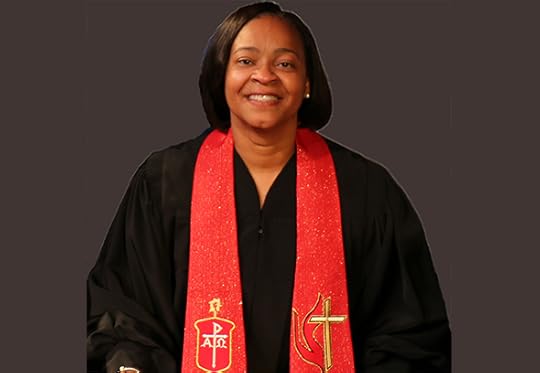Jason Micheli's Blog, page 145
March 6, 2017
I’m Every Woman: Sermon in Verse
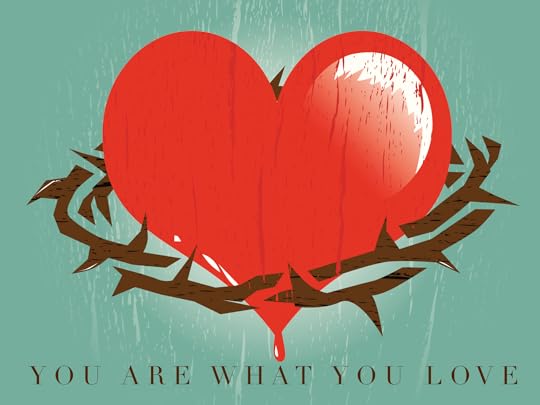 Jazz vocalist Darden Purcell and Eric Sabo’s trio provided our music for the first weekend of Lent. Because they were there and because I’ve always been a fan of So I Married an Axe Murderer I decided to write my sermon on Psalm 51 as a beat poem with the band underneath me.
Jazz vocalist Darden Purcell and Eric Sabo’s trio provided our music for the first weekend of Lent. Because they were there and because I’ve always been a fan of So I Married an Axe Murderer I decided to write my sermon on Psalm 51 as a beat poem with the band underneath me.
‘It works.’ It works, indeed,
It’s more buttoned-down
Than ‘Christos Anesti!’
But such were the first
Easter words pronounced
Over the new heart
Of-
Louis Washkansky.
Louis-
A Lithuanian Jew
Was born in 1922.
Louis fought Mussolini.
Having seen El Duce
Strung up by his heels,
(like a fascist pig at the butcher)
Louis Washkansky
Settled down in Cape Town
And opened a grocery.
Until-
54 years
Pricks to the finger,
And shots to the guts,
Up and down sugar.
Then-
Pain down arms, elephant on chest,
1, 2, 3 cardiac arrests
Rendered him habeus corpus
For an experimental test.
Louis Washkansky
The first person after 50
Dogs before him to
Another’s heart receive
(Man’s best friend, indeed).
After 9 hours under,
60 attending,
Louis Washkansky
Of the green grocery
Opened his numb eyes
-delivered-
With the heart of a
Girl, 20-something girl
Beating inside his
Bruised and cracked chest.
His heart’s former owner-
She had been struck by a driver
Who’d had one too many.
It’s always 5…somewhere.
The girl with the heart
Was on her way
To buy tea.
And cake.
Yeah.
From her local grocery.
By fate or by lots,
Her heart became another’s to bear:
Louis Washkansky’s.
When-
Louis Washkansky
First fluttered his eyes,
His chest beating fresh
And faithfully as
The checkout on aisle
Number 5,
“It works”
Said-
The doctor, a preacher’s kid
From Cape Town,
Like God b’fore the new hewn
Grave: ‘It works.’
In Afrikaans,
Said: ‘It works.’
The girl’s grief-blind Father,
The doctor’s trial and error,
Had given the the grocer
Exactly what each of us
Would gladly broker:
A new- a different- heart.
If we had the hearts
Sufficient to tell
The truth to each other:
My need is as great as that grocer’s.
My desire to back trace my steps
Just as desperate
As his donor.
What the doctor concluded
of Louis Washkansky.
What You first declared
About Adam and Eve
Is what my heart longs to hear
You pronounce over me:
‘It works.’
My heart, it works.
But for that to happen
I too first require
Some kind of surgery.
A new, a different, a clean
Heart-
What harm could it be?
I’ll just repeat:
mercy.
A new, a different, a clean
Heart-
That’s what I most need.
Without one, the best I
Can do is plead for
Your, on your mercy.
Which is, perhaps, the
Ultimate, stinging
Irony
In a life that hides
Behind them
Trades in them
Thrives on them.
What I’m so stingy to bequeath
Is the one thing I’m starving to receive.
Mercy.
I’m not talking about the one an’ done
Caught red-handed, get out of jail free-dom
Sort of mercy.
Not the snake-oily, Holy Ghost, Fatherweejus mercy.
Not the hair-sprayed preacher’s mercy.
Not the jury of your peers’ mercy.
I’m talking about the mercy that’s weighted down
By hard and heavy consonants that break bonds
Cut oceans in two
Crack water from rock.
Hesed.
Steadfast.
The
No matter what.
You do despite what I do
Mercy.
Have that kinda on me.
But even this plea of mine
Points out my problematic plot line
It’s alway all about
Me, me, me.
You upstairs
The man down the street
She across the bed
I’m like a dyslexic St Paul:
The one thing I ask of you
The one thing I want?
I do not do.
The one thing I ask of you
Is the last I’ll offer you.
When it comes to mercy,
It’s better to receive
Than it is to believe
You must give
It.
When it comes to mercy?
I am reticent.
I am hesitant.
I am no better than Maleficent.
Grace is less amazing
When it’s another’s song.
Trust me-
‘Tis better to be found
Than to get up and to find.
But You already see my blindness
Know my mind, know,
Know that what I solicit
I so seldom show.
I need a Billy Mays magic miracle.
Shazamm!
Over my sin-stained self.
Not 3 Hail Marys, nor alms for the poor
Costlier even than
Easy installments of $19.94.
More chi-chi than gold
Or frankincense and myrrh.
Like Nathan to David,
Like Nicholson to Cruise,
The truth about me
I can’t handle it.
Because I’ve exercised so much equity
With my iniquity
My sin is in me,
Ground down deep-like wine and dirt and blood-
To the fibers and sub-flooring
Of my soul and my Being.
If I were a suit you took the cleaners
You’d get charged extra
And told not to expect me
For at last 3 business
Days- you’d hear her disgust in Korean
As she wondered to the woman
With pins in her teeth
Exactly what you’d done in me.
Mercy is what I need.
My sin is ever before me .
Like grace’s doppleganger
In, with and under
Just say the words, no reply
I am not worthy
Of your mercy.
My sin is ever before me
Every pair of eyes
The most unflattering of mirrors
Revealing not the extra 2-inches
Or the male-pattern baldness
But the mystery that we’re
The only members of your handiwork
Who know not how
To be creatures.
Behind my every offense-
If I take measure,
That’s what I should confess:
Thinking the world here for my pleasure
Not me made for my Creator.
Failure to be human:
I’m guilty as charged.
And it’s crime that moves all the rest of you
To the back of the line.
Because against You
You Alone
Have I sinned.
To you I gave the finger.
And uttered ‘Sorry doesn’t cut it.’
To you I sent the all CAPS email with the
!!!
I unfriended You.
For your Tea Party bat crazy,
Your Moveon.org rant.
And hung up when You picked up.
To You I told the
Little white lie
and the outright one.
To You I raised my voice for no good reason.
And said ‘Yes Dear, I’m listening.’
To You, I said ‘Sorry, I don’t have any cash.’
up here
It was Your eyes I forgot were
To You I was a noisy gong, a clanging symbol
Neither patient nor kind
Keeping track of Your trespass
Just as I expect You to forgive mine.
Every sin I’ve committed
Every person I’ve harmed
Count them together
It adds up to one:
You.
Against You alone have I sinned.
Your ledger longer than any other’s.
You’ve seen my worst, every inward part
So You know better than me
How sorely I need
A new and clean heart.
A clean heart!
I’m so far removed
From my mother’s womb
I cannot imagine
What possessing said heart would mean for my other organs
For my ears and my tongue and my mind.
Louis Washkansky knew.
For a time- well, if not clean-
At least more innocent than mine.
The grocer from Cape Town survived
With the unlucky girl’s inside
Him for 18 short days.
But 18 days!
For 400 hours
Louis Washkansky
The grocer who’d seen horrors
The battles and blood
Trenches and marches
Of war.
The camps, the mass graves, the ovens.
For 18 days-
Louis Washkansky
Found respite inside
an innocent’s heart.
Do the memories recede?
Does the mind forget?
What the heart never learned?
For 18 days
A war-jaded vet
Quickened with her pulse-
Her naiveté-
That still more days lay
Ahead of her.
Had she had her first kiss?
Been spurned by a friend?
Acquired the scars
Which always become
our kids’ first lessons?
With her’s beating inside him
I wonder-
Louis Washkansky-
Did he love his wife, finally
With a love she’d always fancied?
Did he hear what she left unsaid?
Did he show his children
Her love and attention?
Did he sashay around
And leave the toilet seat down?
Did he listen and feel
And, for once, find the right words
To: Honey?
What are you thinkin’?
With her inside him
Was it freeing?
To finally, truthfully, be singing:
‘I’m every woman.’
Or was it just enough for the grocer
To hear
What we’d mortgage heaven to broker
What we’d plead for You to impart:
‘It works’
A new, a clean, heart.
Louis Washkansky
His new heart, her old one
Beat for only 17 days longer
His/her doctor, the Cape Town preacher’s kid
Could not give
What only You can offer.
But still-
I’ve got to wonder
Can even You impart
Such an illogical grace
As a new, clean heart?
I mean-
How can what is Yours only
Be mine?
Without it being less than You?
How can the infinite
Lodge
In this small space I’ve carved for it?
Given what impossible surgery
A new, a clean heart would require
The metaphysical
To say nothing of the biological
Might it be sufficient to desire
Not what in me You must do
A new heart to own
But just You.
You alone.
If so, then the point
Is not a doctor
To bind us
To extend us 18 or 15 or a few more days
But to break our spirit
So that, broken, our
Lips may proclaim Your
Praise.
Follow @cmsvoteup

March 5, 2017
To Sam on the Occasion of Your Marriage
Sam, above in the middle, is one of my favorite youth of all time. He got married today (Crap, I’m old), and his Dad, who’s one of my favorite lay people of all time, asked if I could write a note to Sam for the occasion.
Dear Sam,
Congratulations on your wedding day! Your Dad asked me to write a note to you for the occasion. Likely your Dad meant to throw me a bone since I apparently didn’t rate to officiate the service; nevertheless, I’m honored to oblige and to participate in any capacity.
It’s been a few years since you all moved away but, before you did, I knew you well enough to write in your college reference letter that I hoped my own boys would grow up to be like you one day. As a UVA fan I take a dark view of the University of Kansas, yet even I can’t imagine UK has had such a corrosive effect on your character as to amend my previous appraisal of you. Your bride-to-be is fortunate to have found you and, because I trust the sort of woman you would choose to marry, I imagine you should be grateful to have found yourself discovered by her.
It’s been a while since we’ve talked, Sam, but before anyone in a monkey suit says ‘Dearly Beloved’ and before either of you say ‘I do,’ I’ve got a damn good question for you, a question I ask just about everyone I marry:
What are you thinking?
How can you two be ready? No matter your age or your experience in life, how can you, or anyone, possibly be ready to make such promises? Have you read the fine print we with Christian-speak call ‘vows?’
Trust.
Fidelity.
Intimacy.
Self-denial.
Sickness.
Poverty.
Forever!
Except, it’s not really forever in a happily ever after way either, is it? Because you’re also vowing to help each other die one day too. I mean it in every possible sense: that’s some holy shit. No matter how many times we have sat in pews or plastic chairs and listened to people like me announce “Dearly Beloved,” those are daunting promises to make to one another.
Indeed, I believe, if God has not raised Jesus from the dead those promises are unintelligible and may also be irresponsible.
No wonder your Dad wanted to write to you!
In the same way parents often want to have their pastor strike up a relationship with their youth as a way of keeping their youth from having sex too early, I bet your Dad wanted me to write you a letter to inoculate your marriage against the unintended wounds and petty havoc that humans in love do to each other. In other words, I’ll wager your Dad wanted me to dispense some wisdom by which your marriage will flourish and bear fruit or, at the very least, your Dad was hoping I might have some pointers that’ll keep you and your beloved (for now?) from killing each other.
It’s an understandable wish on your Dad’s part, Sam. These are enormous, outrageous promises to make. Like all aspects of Christianity, marriage is a high-risk adventure, for a life lived together can expose the worst in people, all the intricate flaws and foibles that come with human nature. When you and your bride say ‘I do’ to each other in no small part you’re saying ‘I do’ to the risk the other now brings into your life and your future.
With your ‘I do’ you’re accepting the risk that your spouse will have within their power the ability to do tremendous and even irreparable harm to you.
No, you’re not accepting the risk; you’re placing it like a weapon in each other’s hands. Like in Isaiah’s vision, the potential weapon- your trust, your true self, your vulnerability- is also, potentially, a tool, the means by which you two can harvest fruit greater than what the two of you bring individually to your relationship. Or, as the Church likes to say, the two shall (shall always sounds more like a hope than a guarantee, doesn’t it?) become one flesh.
Marriage is risky business, Sam. Your ‘I do’ not only bestows to your bride the power to wound you one day, it also acknowledges that the person to whom you say ‘I do’ is not only the person standing next to you; it’s whomever that person will become, something that is unknown and unseen to the both of you.
Because you’re saying ‘I do’ to a future stranger, Sam, it’s always good for Christians to remember that Christians are required to love one another. Even if they are married. Indeed you’ll find soon enough the ability to love your enemy is often the necessary skill to love your spouse.
You’ll find them an enemy from time to time precisely because the person you marry will not be the same person 15, 30, 45 years hence. That’s one of the risks you take, but as far as the church is concerned it’s a beautiful risk. It’s an act of- no, it’s a leap of- faith.
Of course the rub that comes with this risk is that neither will you 15, 30, 45 years hence be the same person who says ‘I do’ today.
Today, with vows and rings, you give yourself over to be transformed by the perceptions of the other.
Today you covenant to let the love and perceptions of your bride shape you anew. Trust me, ignore all of the above. This is the biggest risk you accept with your ‘I do.’ It’s scary as hell.
If you read my book (if not, read it on your honeymoon) you know I like to tell couples ‘You never know the person you’re marrying until after you’ve been married to the person you’re marrying.’ What I seldom tell them but will tell you just because I love you more than most of them is that this rule has an even more frightening corollary:
You are never as fully seen and known as you are seen and known by the person to whom you’re married.
Marriage isn’t just a process in which you discover who the stranger is that you’ve married; marriage is a process in which you discover who the stranger is that you call ‘you.’
If the fullness of what it means to love is to know the other with all our heart and mind and soul and strength, then to be loved means that our heart and mind and soul and strength are fully exposed and seen and known by another.
And God, that’s scary.
It’s not often that our heart or mind or soul or strength measure up to our own estimation of them. When we’re in love, before we’re married, not only do we have an incomplete understanding of the other person. We have an incomplete understanding of our self. We bring in to marriage a self-image that’s been formed by the judgments and praise of people who don’t know us as well our spouse eventually will know us. And so, as we live our lives with someone else, we discover that we’re not the same person we thought we were.
In a marriage, there’s not a lot of room to hide and you’ll find yourself naked to her in more places than the bedroom. Your heart and mind and soul and strength- all of it gets exposed on a daily basis.
The relationship advice books will tell you that there’s no secrets in marriage, but what’s so difficult about being married is that there aren’t nearly as many secrets as we’d like. It’s not just the other person’s flaws and imperfections that are revealed in marriage. It’s your own.
It’s scary as hell, Sam.
But, without that kind of ‘nakedness’ before the other, there’s really no other reason for marriage.
Marriage, for Christians at least, isn’t about progeny or pleasure. It’s about perfection.
Marriage, we believe, is one of the means in which and by which we’re perfected in our love. Such perfection, as Christians mean it, is for the sake of preparation. Our life lived with another we call beloved is meant to make us ready to live with the Father who through the Spirit calls the Son ‘Beloved.’ Marriage, then, fits us for heaven. It incorporates us into the life of the Trinity, the invisible relationship of which your relationship with your spouse is meant to be a visible sign.
The way St Paul says it, each of us is being transformed. We’re moving, Paul says, from one degree of glory to the next and from there to the next degree of glory. We’re being ‘unveiled’ of all our sin and pretenses until- so that, we can- we meet God face-to-face. And that unveiling only happens through the love that is truth that we call, perhaps somewhat euphemistically, grace.
Perfection of the other, moving the other from one degree to the next degree of glory and them moving you- that’s the purpose of marriage.
That’s why, Sam, even though a few years ago I thought you were so perfect I wanted my boys to grow up to be like you, my prayer for you on your wedding day is that someday you and your wife can say to each other ‘I’m not the person you married.’
Peace,
Jason
Follow @cmsvoteup

March 4, 2017
Interview with John Fugelsang

Generated by IJG JPEG Library
I was a guest on Tell Me Everything with John Fugelsang this week on SiriusXM. He is a sharp and funny guy and I think it turned out to be a fun interview.
Here it is:
Follow @cmsvoteup

March 3, 2017
Episode 83 – Bishop Sharma Lewis: First Name Basis
Teer, Taylor, and I road tripped to Richmond to record live and in person with Bishop Sharma Lewis, the one person after the Almighty who holds our fate in her hands.
Bishop Sharma Lewis, resident bishop of the Richmond episcopal area, became the first African-American woman to be elected bishop in the Southeastern Jurisdiction of The United Methodist Church in 2016.A graduate of Mercer University (B.S., Biology, 1985), the University of West Georgia (M.S., Biology, 1988) and Gammon Theological Seminary at the Interdenominational Theological Center (M.Div., 1999), Bishop Lewis worked as a research biologist and chemist prior to surrendering to God’s call upon her life.
Coming up, we’ve got conversations for you with Richard Rohr as well as a conversation with Robert Jenson.
And don’t forget to check out our lectionary-based offshoot of the podcast. We’re calling it Strangely Warmed.
Stay tuned and thanks to all of you for your support and feedback. We want this to be as strong an offering as we can make it so give us your thoughts.
You can download the episode and subscribe to future ones in the iTunes store here
We’re breaking the 1K individual downloaders per episode mark.
Help us reach more people:
Give us 4 Stars and a good review there in the iTunes store.
It’s not hard and it makes all the difference.
It’ll make it more likely more strangers and pilgrims will happen upon our meager podcast. ‘Like’ our Facebook Page too. You can find it here.
Oh, wait, you can find everything and ‘like’ everything via our website.
If you’re getting this by email, here’s the permanent link to the episode.
Follow @cmsvoteup

March 2, 2017
God Doesn’t Give a Damn
 Here’s my Ash Wednesday sermon. The texts were Psalm 51 and Luke 15.11-24.
Here’s my Ash Wednesday sermon. The texts were Psalm 51 and Luke 15.11-24.
Since Ash Wednesday is a day for confession, I suppose an apology is in order.
Dennis and I- we should say we’re sorry. It’s our fault.
After all, every year, every Ash Wednesday, we make you flagellate yourselves with King David’s hyperbolic guilt and indulgent self-loathing: “My sin is ever before me…Against you, you alone God, have I sinned…Indeed, I was born guilty, a sinner since my mother conceived me.”
It’s our fault.
Every year, every Ash Wednesday, we drag you through this liturgy that, no BS, derives, from the ceremonies for the reconciliation of grave sinners, like torturers and rapists and conquistadors.
And then every year, every Ash Wednesday, we invite you forward to receive ashes to remember that from dust- by God’s grace- you came but to Death- by your sin- you deserve to go.
So I apologize. We’re sorry. It’s our fault.
If you’re one of those people who think that when we do good God will reward us, if you’re one of those people think that when we do evil, when we sin, God will punish us, if you’re one of those people then maybe it’s our fault.
I mean, it’s freaking strange that Christians of all people should think this way about God, think that God doles out what we sinners deserve but maybe it’s our fault.
Maybe we’ve let the sackcloth and ash mislead you.
Sure, it’s not really odd that other people should think of God this way, think of God rewarding us when we do good and punishing us when we sin. It’s probably the most common way of thinking of God.
Freud was dead-on right: for most people God is just a great projection out onto the sky of our own interior. Our own feelings. Especially the guilty ones.
But if that’s who God is, rewarding us when we’re faithful and punishing us when we’re sinful, then I don’t believe in Him. And neither should you.
I mean if you think God is like Santa, forever auditing us to reward the nice and punish the naughty, then you better wipe your ashes tonight because you’ve lost the plot.
God, Jesus preaches again and again, isn’t like that all.
——————————
Just take the parable.
The prodigal son goes off to a distant country, far off from his father, and goes on a Tinder binge. Only after he’s penniless and debauched as Tiger Woods, does the prodigal see himself for what he is.
“I am no longer worthy to be called your son; treat me as one of your hired servants.”
Here’s a question for Ash Wednesday:
Where did the son get the idea that his father would ever treat his children like hired hands? Where did he ever get the idea that his father gave his children what they deserved?
Notice- how the prodigal son’s sin- his sin– alters his whole relationship with his father.
Alters how he sees his father.
Instead of seeing himself as his father’s beloved son, the prodigal sees himself as one who gets the wages he’s earned. Instead of seeing his father as someone who loves without condition, he now sees his father as someone who doles out to his children what they deserve.
Notice, and this is everything tonight, seeing his father as someone who doles out what his children deserve- that isn’t who his father is. That is what the son’s sin has done to how he sees his father.
His father hasn’t changed.
His sin has changed how he sees his father.
Seeing his relationship with his father this way, it’s what his sin has done, and just so you see it too, Luke repeats it twice.
The prodigal son’s sin- it’s something that changes God into a wage-master, into a judge, into a father who doles out what his children deserve.
You see-
Sin turns God into exactly who Freud said God was: the projection of our feelings of guilt. Sin turns God into the projection of our shame so that we no longer see the real God at all.
‘God’ isn’t a proper name, don’t forget. It’s an answer.
Fundamentally, ‘God’ is the answer we give to the question ‘Why is there something instead of nothing?’ a question to which there is never any other answer but grace and love.
But instead, according to Jesus here in Luke 15, our sin turns God into an accuser, a wage master, a judge who weighs our deeds and damns us.
Maybe tonight, more so than any night, when we put forth confession and put on ash, it’s crucial that we stop and notice how so much of our Christian speech and thought is in fact a kind of Satan worship.
It’s worship of an Accuser.
Which can never be motived by love or joy.
Maybe tonight of all nights, instead of confessing, we should be lamenting, lamenting how for many of us, because of our sin, the only glimpse of God we ever see is how God looks from Hell.
That’s what Christians means by ‘damnation’- it’s self-imposed exile.
To be damned is to be fixed forever in this illusion about God. It’s to be so stuck on justifying your self, so shut-eyed towards your sins that you end up seeing our Father as your Auditor in Heaven.
——————————
Don’t let the ash get in your eyes and blind you to the real God.
The real God isn’t a kind of Satan, an accuser, weighing your sin to dole out the wages you deserve. The real Father is like this father. And this father, Jesus says, his heart towards his son is no different on the day his son forsakes him than on the day his son returns home to him.
The real God doesn’t mete out reward or punishment according to our merit. Freud was right- that god is a caricature drawn by sin. Our Father in Heaven is like this father, Jesus says, always helplessly and hopelessly loving.
God is like a father whose love without condition.
Because God- pay attention now- is without change. God, by definition is immutable.
God doesn’t mutate. God doesn’t change.
Therefore-
If God does not change, your sin cannot not change God’s attitude towards you.
Your sin does not change God’s attitude about you.
No, what sin does- it changes your attitude about God.
Sin blinds us, distorts our vision, so that the Father we see is a punitive paymaster, an angry judge, a kind of satan.
Just look at all the trouble we’re going to tonight. We’ve carved out a day on to the calendar. We’ve mixed oil with ash- who would ever think to do something like that? You’re skipping Tucker Carlon’s show on Fox News.
Look at all the trouble we’ve gone to tonight- sin matters enormously… to sinners.
Sin matters enormously to us if we’re sinners.
But it doesn’t matter- at all- to God.
God doesn’t change. Your sin cannot change God.
God, literally, does not give a damn about our sin. It’s we who give the damns. We wish our father dead. We hate our brother. We give the damns.
And then we justify ourselves for having done it.
Until finally all we can see is a Hell’s eye view of God.
——————————
Before I graduated, my Jedi Master at Princeton, Dr. Robert Dykstra, a counseling professor, told me that it’s not until year seven in a congregation that the curtain comes up, the pretenses fall away, and you see who your people really are.
“You need to stay in one place long enough,” he said, “so that they no longer have the energy to keep their secrets.”
Well, this is my twelfth Ash Wednesday here. And, by now, I’ve worn you down.
I know a lot of you pretty well. I know who’s cheated on their taxes and who’s cheated on their husbands. I know which husbands were on the hacked Ashley Madison website I know who used to hit their wife and I know the friends that pretend they didn’t know it happened.
I know the fathers who refuse to welcome their own prodigal sons home. I know the children who can’t forgive their parents. And I know who fills a hole in their marriage with stuff or drugs or drink.
After all this time, I know a lot of you pretty well.
And I know a lot of you see God as angry. At you.
As judging, damning. You.
I know a lot of you worry about getting from God what you have coming to you.
I know some of you are here tonight, hoping that if you muster up enough contrition, kneel in penance, pray for forgiveness, and bear your ashes then maybe, just maybe, God will forgive you.
Listen up-
You see God the way you do because of your sin.
Freud’s right, you’ve made that god in your image. Or your sin has.
God’s not angry at you because of your sin. That’s not how it works.
Rather, because of your sin you see God as angry.
God doesn’t give a damn about your sin.
Rather, it’s because of your sin that you see God as damning.
God doesn’t mete out what you deserve.
Rather, because that’s the currency you pay others, you see God as a merit-weighing, sin- auditing, wage-master.
God doesn’t mete out the punishment you deserve.
If you think that then you’ve lost the plot.
God responds to the crosses we build with empty tombs.
After all this time I know you pretty well. I know the damns you’ve given to others in your life. So on this night of sackcloth and ash I want you to know:
God’s love for you doesn’t depend on what you do or who you’re like.
There’s nothing you can do to make the Father love you more and there’s nothing you have done to make the Father love you less.
Our heavenly Father doesn’t care whether you’re a sinner or a saint, a prodigal or a self-righteous elder brat.
It makes no difference to our Father because nothing can make our Father different.
Your sin doesn’t do anything to God, but it can distort everything about you.
It can ruin your eyes even, to the point you don’t recognize your own Father anymore.
——————————-
Don’t let all this talk tonight about sin mess with your sight.
Don’t let your sin change how the Father’s seen by you.
Don’t be fooled into thinking that if you have contrition, if you confess your sins, if you bear your ashes with the proper penitence then God will come and forgive you, that God will be moved by your heartfelt apology, that God will change his mind about you and forgive you.
Not at all.
God never changes his mind about you.
Because God doesn’t change.
No, what God does do- over and again, as long as it takes- God changes your mind about him.
If you’re sorry for your sin, that’s why. If you’re contrite over your sin, that’s why. If you want to be forgiven of your sin, that’s why.
It’s the unchanging God, at work, in you. To change you.
It’s God changing your mind, helping you to see your sin, and see how your sin has changed how you see him.
You are not forgiven because you confess your sin.
You confess your sin, see yourself for what you are, because you are already forgiven.
Forgiveness is not the product of something we do to change God.
Forgiveness is the product in us of what God does to change us.
God’s forgiveness always precedes our confession and contrition.
That’s why when you come forward for a smear of ashes, you are not coming forward in order to have your sins forgiven. You’re coming forward to celebrate that your sins are forgiven.
Which means-
These ashes are not a sign that we are the people who have changed how God views us.
These ashes are the sign that we are the people whose vision God has changed.
Sure, these ashes are black and gritty and oily but you should bear them as though you are wearing the finest robe and gaudiest ring, as though someone has kicked on the turntable and set out the flatware and linens, killed the fattest calf, and invited you to get drunk out of your mind because you once were blind but finally you see.
See-
The God you thought was an angry judge.
An auditor.
An accuser.
He’s just a Dad on a porch.
Follow @cmsvoteup

March 1, 2017
Prayer “Works:” My Reply to Jeffrey Weiss
Prayer “Works” (But Not in the Way So Many Suppose)
Mr. Weiss,
Likely, you expect a clergyman to critique your appraisal of the Book of Job and to encourage you, as the TSA agent who recently squinted at the disparity between the pre-cancer face on my ID and the one in the flesh before her, that “prayer works.”
“I’ll pray for you to be healed” she whispered as she circled and checked things on my boarding pass.
With a terminal cancer of my own- mine’s in my marrow, as voracious as it is rare- I actually think you’re exactly right to point out how the Book of Job reveals the theological problem at the heart of how we so often speak of prayer. God, as the Book Job insists, is incomprehensible. As God says to Job, everything that is did not have to be, a reminder woven into the opening line of scripture “In the beginning…” We are, Job learns, contingent creatures. Our knowledge can never bridge the gap between us and our Creator. If this is true, you’re exactly right to caution against the way we speak of prayer working.
To put it more bluntly: Isn’t it ridiculous (and maybe even idolatrous) to think that through our supplications we can persuade God into doing something God might otherwise not do? You might be surprised to hear, Mr Weiss, that I take it as self-evident that the answer to that question is ‘Yes.’
The God of Job isn’t a god we can manipulate by spiritually-sanctioned means to do what we want. Too often when people tell me they’ll pray for me, the implication left unsaid is that God is otherwise not already with me or at work in me and that if I’m not healed then somehow their prayers didn’t work. Such an understanding of prayer is incompatible with the God of the Book of Job, a God who is at every moment the reason there is something instead of nothing.
Not only do I agree with you, Mr. Weiss, I think St. Paul would too.
After stating the obvious (none of us knows how to pray), St. Paul writes to the Romans that whenever we pray, no matter what it might look like, it’s not actually we who are praying. Rather God, the Spirit, prays in us and through us.
This is what gets missed by so many of the people who tell me they’re praying for me, but it’s something you missed too.
Prayer isn’t something we do. It’s something God does.
Instead of a practice we perform for results we’ve predetermined, when we pray to God, we’re prayed in by God.
God is the impetus behind our prayers as much as the object of them. The very wants and desires we pray, runs St. Paul’s argument, are themselves the handiwork of the ever-present God.
What’s this mean when you’re sick with stage-serious cancer and staring down the-house-always-wins odds?
St. Thomas Aquinas doubles-down on Paul’s point when he writes: “We should not say ‘in accordance with my prayer, God wills that it should be a fine day’ we should say that ‘God wills it to be a fine day, in accordance with my prayer.’”
God wills our prayers, says Aquinas, as much as God wills the fine day.
Let me put Aquinas’ point a bit more personally for the both of us:
We should not say in accordance with the TSA agent’s prayer, God wills that I should be healed of my cancer; we should say that ‘God wills that I should be healed of my cancer, in accordance with her prayer.
That’s no guarantee I’ll be healed, and if I’m not healed, there’s no explanation behind it of the sort Job’s churchy friends assumed. However, it is a guarantee that my desire to be healed, as well as the desire of all those praying for me, isn’t our desire alone or even originally. It’s a desire shared by- initiated by- the God who prays in us.
You’re dead on, as contingent creatures we can never the why behind the Creator’s doings. If we could, then God would not be God.
But to your other suggestion, that God does not care about your friends’ prayers, I disagree. Not only does God care about your friends’ prayers, their prayers derive from and originate in God. Indeed it’s not strong enough to say God cares about your friends’ prayers. Their prayers are, in fact, a sign- a sacrament, as we say in the Church- of God’s love for you.
You can find the article here:
http://www.usatoday.com/story/opinion...
Follow @cmsvoteup

February 28, 2017
Screw Chocolate, Choose Failure This Lent
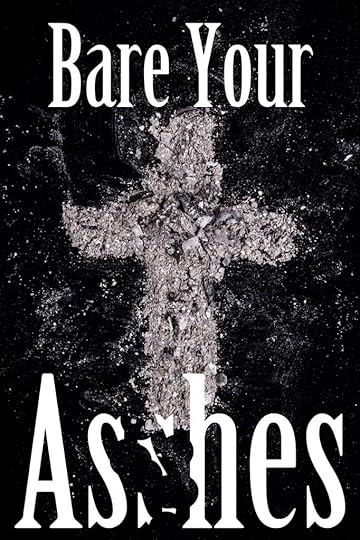 Tomorrow is Ash Wednesday, the day when Christians defy every lie sold to us by Madison Avenue, the American healthcare system, and our President’s eerily orange visage. (Not to mention, Warren Beatty is still alive? WTF?)
Tomorrow is Ash Wednesday, the day when Christians defy every lie sold to us by Madison Avenue, the American healthcare system, and our President’s eerily orange visage. (Not to mention, Warren Beatty is still alive? WTF?)
Here’s the lie:
We’re not getting out of this life alive.
Not a one.
Heaven may be but Death definitely is for real.
With dismal colored ashes, tomorrow Christians confront the stark, counter-cultural truth: from adamah (‘earth’) we were made and to the adamah we shall with 100% certainty return.
Ash Wednesday is about our sin, which is but a way of saying it’s about our mortality, which means it’s about all our finitude, shortcomings and contingencies wrapped up in that time-bound word. Ash Wednesday begins the season of Lent, the Latin word for 40th, recalling Jesus’ 40 days of testing in the wilderness before his ministry led him inexorably to the cross.
Jesus’ own 40 days in the wilderness echo the 40 years Israel was tested in the wilderness after their Exodus from slavery into Egypt. Whereas Jesus squares off against the devil without a hitch (‘man does not live by bread alone’ says the starving Jesus), Israel fared a bit worse (see: calf, golden).
Jesus does what Israel could not do for itself.
Jesus, it seems quite obvious to the Gospel writers and those who coordinated our lectionary, represents all the people of Israel in his own person.
And that’s no small point to note as we begin a season in which many Christians will begin their own ‘testing’ by forsaking chocolate, booze or social media. There’s nothing wrong with fasting and discipline to anticipate the Easter feast. The Church has been doing so for centuries, and, as for myself, I will be giving up both beverages of the fermented variety and furry animals on my dinner plate. And if previous Lenten fasts are any indication, I will probably be successful at this modest undertaking.
But, however good they be, modest Lenten goals that, truthfully, only intrude upon my daily life as ‘annoyances’ miss the larger point of the season:
Jesus does what we cannot do for ourselves.
Jesus represents all of us in his flesh.
It’s true that in Jesus, God became one of us, was every bit as human as each one of us, experienced everything entailed by our humanity.
But it’s also true that while being 100% Human, Jesus remains, simultaneously, 100% God.
Though one of us, Jesus is not just one of us at all.
Quick history lesson:
Beginning in the 18th century, Christians began to take their cues from the Enlightenment. Now, only that which was rationally demonstrable and confirmed by our own private experience was considered ‘true.’ Rather than conforming their definitions of truth to scripture, Christians looked to scripture to confirm their a priori presumptions about what was ‘true.’ Where it did not, scripture was now considered ‘myth.’
So, for example, the story of Jesus’ 40 Day testing by Satan in the wilderness is no longer a ‘true’ or realistic story about what Jesus has done. Instead Christians turned to the story of Jesus’ trials in the wilderness and saw in it a parable for their own times of trial and temptation.
Rather than being a unique story about Jesus’ absolutely singular vocation, it became a generalized story about our common human experience.
If you’re in a church that follows the lectionary, just listen to the sermon tackle Jesus’ wilderness testing. Is the sermon about how Jesus’ trials are examples of trials that come to all of us in life (cue personal- probably sports- illustration from the pastor). Or is the sermon about how in the wilderness Jesus begins his work of doing what neither Israel nor we can do for ourselves?
The Gospels tell not the story of generalized human experience found in the person of Jesus; the Gospels tell how God in Christ frees human experience from what binds it.
And because Christians ever since the Enlightenment have been so bad at remembering that perhaps this Lenten season we should forget our modest, achievable fasts and spiritual disciplines.
Instead this Lent maybe we should go balls to the wall and take on a test we know we have no hope of ever keeping.
Maybe by choosing a fast we know will end in certain failure we’ll remember the hard but good news with which this season ends:
Jesus does what we cannot do for ourselves.
For us.
Follow @cmsvoteup

February 27, 2017
Lent 1A – Stanley Hauerwas: Legalism is Our Original Sin
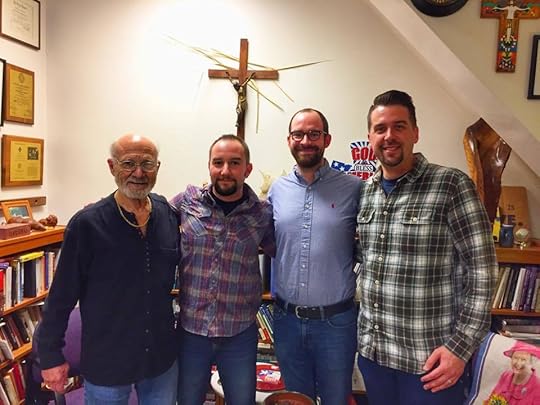 Crackers and Grape Juice kicked off our new lectionary podcast, Strangely Warmed, by road tripping to Durham to talk about to Stanley Hauerwas. Even though Stanley doesn’t know what a podcast is, he welcomed us to his 3rd floor office for a candid sitdown.
Crackers and Grape Juice kicked off our new lectionary podcast, Strangely Warmed, by road tripping to Durham to talk about to Stanley Hauerwas. Even though Stanley doesn’t know what a podcast is, he welcomed us to his 3rd floor office for a candid sitdown.
Not only did Dr. Hauerwas give us books from his vast collection, he even offered us some his classic Hauerewas humor.
Lent, Year A, kicks off with Matthew 4.1-11 and Genesis 2:15-17; 3:1-7. We opened with Matthew 4 and then we talked about the fall accounted in Genesis.
How do I know this podcast is worth your time?
Because Stanley points out how Eve is wrong in Genesis, God never said they couldn’t touch the fruit. God only told them not to eat it.
Adding to God’s law is our very first sin, Stan observes. A nimble preacher should be able to leap from there to the Romans 5 lection extolling the sufficiency of Christ for our salvation.
Genesis 2:15-17; 3:1-7
15 The Lord God took the man and put him in the garden of Eden to till it and keep it. 16 And the Lord God commanded the man, “You may freely eat of every tree of the garden; 17 but of the tree of the knowledge of good and evil you shall not eat, for in the day that you eat of it you shall die.”
Now the serpent was more crafty than any other wild animal that the Lord God had made. He said to the woman, “Did God say, ‘You shall not eat from any tree in the garden’?” 2 The woman said to the serpent, “We may eat of the fruit of the trees in the garden; 3 but God said, ‘You shall not eat of the fruit of the tree that is in the middle of the garden, nor shall you touch it, or you shall die.’ ” 4 But the serpent said to the woman, “You will not die; 5 for God knows that when you eat of it your eyes will be opened, and you will be like God,a knowing good and evil.” 6 So when the woman saw that the tree was good for food, and that it was a delight to the eyes, and that the tree was to be desired to make one wise, she took of its fruit and ate; and she also gave some to her husband, who was with her, and he ate. 7 Then the eyes of both were opened, and they knew that they were naked; and they sewed fig leaves together and made loincloths for themselves.
Matthew 4.1-11
Then Jesus was led up by the Spirit into the wilderness to be tempted by the devil. 2 He fasted forty days and forty nights, and afterwards he was famished. 3 The tempter came and said to him, “If you are the Son of God, command these stones to become loaves of bread.” 4 But he answered, “It is written,
‘One does not live by bread alone,
but by every word that comes from the mouth of God.’ ”
5 Then the devil took him to the holy city and placed him on the pinnacle of the temple, 6 saying to him, “If you are the Son of God, throw yourself down; for it is written,
‘He will command his angels concerning you,’
and ‘On their hands they will bear you up,
so that you will not dash your foot against a stone.’ ”
7 Jesus said to him, “Again it is written, ‘Do not put the Lord your God to the test.’ ”
8 Again, the devil took him to a very high mountain and showed him all the kingdoms of the world and their splendor; 9 and he said to him, “All these I will give you, if you will fall down and worship me.” 10 Jesus said to him, “Away with you, Satan! for it is written,
‘Worship the Lord your God,
and serve only him.’ ”
11 Then the devil left him, and suddenly angels came and waited on him.
Stanley Hauerwas will be back for the next few week’s of Lent, Eric Hall will join us to close out Lent, Tony Jones will dish with us on Holy Week, and Brian Zahnd teed up for Eastertide.
All of it is introduced by the soulful tunes of my friend Clay Mottley.
You can subscribe to Strangely Warmed in iTunes.
You can find it on our website here.
Follow @cmsvoteup

February 26, 2017
Slackers and Moochers: Support the Podcast!
 Okay, as this little theo-venture gains traction and grows in listeners so do the bills.
Okay, as this little theo-venture gains traction and grows in listeners so do the bills.
If you like the podcast, our guests, and the conversation and you want to keep it going we’ve set up a page for you to be patron of the podcast.
PATRONS’ REWARDS
Basic Cracker
$5 or more per month
Not only will you have our undying thanks but you will also recieve hand written thank you card from one of the guys.
$5 Level
The Book Cracker
$20 or more per month
Receive everything from the ‘Basic Cracker’ level plus receive a book of Jason’s choosing from his vast collection.
$20 Level
Name that Cracker
$100 or more per month
Receive everything from the ‘Basic Cracker’ and ‘Book Cracker’ levels plus pick the theme and title of an upcoming episode.
$100 Level
Be Our Guest
$150 or more per month
Receive all of the rewards below PLUS join us for the episode theme you chose!
$150 Level
Help us out.
Click here
Help us keep talking faith without stained glass language.
Did you click? I mean, really, who doesn’t have $5 or $25 to spare?
Follow @cmsvoteup

February 25, 2017
Cancer is Funny Interview on CXMH Podcast
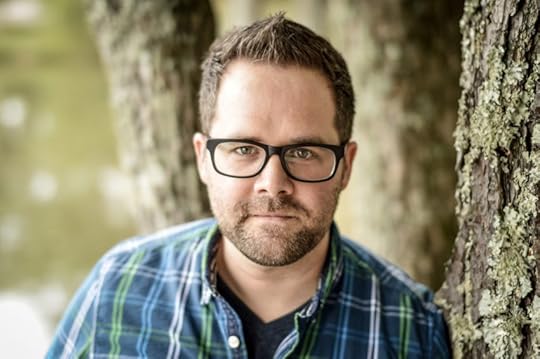 Steve Austin and Robert Vore recently had me on their CXMH Podcast to talk about Cancer is Funny.
Steve Austin and Robert Vore recently had me on their CXMH Podcast to talk about Cancer is Funny.
Check it out here. It even comes with an Explicit Lyrics warning in iTunes!
While you’re at it, take a look at Steve’s 7 Day Self-Care Challenge.
“SELF CARE” IS ONE OF POP PSYCHOLOGY’S LATEST BUZZWORDS, BUT THIS 7-DAY CHALLENGE, CREATED BY AUTHOR, PASTOR, AND SELF CARE COACH, STEVE AUSTIN, IS A GUIDE FULL OF HELPFUL, PRACTICAL CONTENT FOR READERS FROM ALL WALKS OF LIFE.
IF YOU HAVE EVER FELT HOPELESS OR BELIEVED THAT ALL THE BAD THINGS IN YOUR LIFE ARE BEYOND REDEMPTION, IF YOU HAVE EVER FELT UNWORTHY OF BEING LOVED OR ACCEPTED OR FEARED WHAT WOULD HAPPEN IF PEOPLE FOUND OUT YOUR SECRETS, YOU WILL FIND THIS 7-DAY SELF CARE CHALLENGE TO BE A COMFORT AND A GUIDE FOR A NEW KIND OF LIVING. NO MATTER YOUR STARTING POINT, THE TOOLS IN THIS QUICK SELF CARE OVERVIEW WILL HELP BRAVE BUT WOUNDED SOULS BEGIN TO ANSWER THE QUESTION, “NOW WHAT?”
STEVE AUSTIN KNOWS THAT RECOVERY AND SELF CARE ARE POSSIBLE BECAUSE HE HAS HIT ROCK BOTTOM AND LIVED TO TELL ABOUT IT. BY DISPLAYING A GREAT DEAL OF VULNERABILITY, COURAGE, AND GRACE, STEVE HOPES THIS SIMPLE 7-DAY CHALLENGE WILL MOTIVATE OTHERS TO NOT ONLY SEEK THE HELP THEY NEED, BUT ALSO SPARK A DISCUSSION AROUND THE NECESSITY OF SELF-CARE IN EVERYDAY LIFE.
READY TO START THE CHALLENGE? JUST CLICK HERE!
Jason Micheli's Blog
- Jason Micheli's profile
- 13 followers



